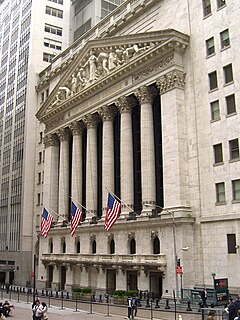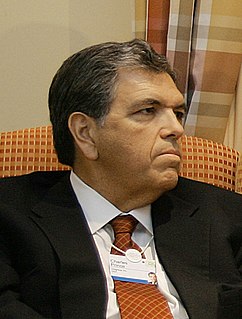The business judgment rule is a case law-derived doctrine in corporations law that courts defer to the business judgment of corporate executives. It is rooted in the principle that the "directors of a corporation... are clothed with [the] presumption, which the law accords to them, of being [motivated] in their conduct by a bona fide regard for the interests of the corporation whose affairs the stockholders have committed to their charge". The rule exists in some form in most common law countries, including the United States, Canada, England and Wales, and Australia.

The Supreme Court of Delaware is the sole appellate court in the United States' state of Delaware. Because Delaware is a popular haven for corporations, the Court has developed a worldwide reputation as a respected source of corporate law decisions, particularly in the area of mergers and acquisitions.

Smith v. Van Gorkom 488 A.2d 858 is a United States corporate law case of the Delaware Supreme Court, discussing a director's duty of care. It is often called the "Trans Union case". Van Gorkom is sometimes referred to as the most important case regarding business organizations because it shows a unique scenario when the board is found liable even after applying the business judgment rule. The decision "stripped corporate directors and officers of the protective cloak formerly provided by the business judgment rule, rendering them liable for the tort of gross negligence for the violation of their duties under the rule."

In United States corporation and business association law, a duty of care is part of the fiduciary duty owed to a corporation by its directors. The other aspects of fiduciary duty are a director's duty of loyalty and (possibly) duty of good faith.
Leo E. Strine, Jr. is a former judge in the state of Delaware. He served as the Chief Justice of the Delaware Supreme Court from 2014 to 2019.

Re Barings plc [2000] 1 BCLC 523 is a leading UK company law case, concerning directors' duties of care and skill. The case is formally identified and cited as "No 5", though some observers regard it as the sixth in the saga of litigation concerning Barings Bank.
Directors' duties are a series of statutory, common law and equitable obligations owed primarily by members of the board of directors to the corporation that employs them. It is a central part of corporate law and corporate governance. Directors' duties are analogous to duties owed by trustees to beneficiaries, and by agents to principals.
The Charitable Corporation v Sutton (1742) 26 ER 642 is an important old English law case which holds in substance that a director of a company owes duties to the company in the same measure and quality as does a trustee to a trust. It makes the point that judges should not be quick to judge decisions of directors with hindsight.

United States corporate law regulates the governance, finance and power of corporations in US law. Every state and territory has its own basic corporate code, while federal law creates minimum standards for trade in company shares and governance rights, found mostly in the Securities Act of 1933 and the Securities and Exchange Act of 1934, as amended by laws like the Sarbanes–Oxley Act of 2002 and the Dodd–Frank Wall Street Reform and Consumer Protection Act. The US Constitution was interpreted by the US Supreme Court to allow corporations to incorporate in the state of their choice, regardless of where their headquarters are. Over the 20th century, most major corporations incorporated under the Delaware General Corporation Law, which offered lower corporate taxes, fewer shareholder rights against directors, and developed a specialized court and legal profession. Nevada has done the same. Twenty-four states follow the Model Business Corporation Act, while New York and California are important due to their size.
The corporate opportunity doctrine is the legal principle providing that directors, officers, and controlling shareholders of a corporation must not take for themselves any business opportunity that could benefit the corporation. The corporate opportunity doctrine is one application of the fiduciary duty of loyalty.

Revlon, Inc. v. MacAndrews & Forbes Holdings, Inc., 506 A.2d 173, was a landmark decision of the Delaware Supreme Court on hostile takeovers.
In re Walt Disney Derivative Litigation, 907 A 2d 693 (2005) is a U.S. corporate law case concerning the scope of the duty of care under Delaware law. Disney is the leading case on executive compensation.
Corporate litigation in the United Kingdom is that part of UK company law which gives investors the right to sue the directors of a company, or vindicate another wrong to the company, particularly where the board of directors does not wish to act itself.
William T. Allen was a professor of corporate law at New York University law school, and the Chancellor of the Delaware Court of Chancery from 1985 to 1997. He also worked for the bank and business law firm Wachtell, Lipton, Rosen & Katz.
Directors' duties in the United Kingdom bind anybody who is formally appointed to the board of directors of a UK company.

Canadian company law concerns the operation of corporations in Canada, which can be established under either federal or provincial authority.

Benihana of Tokyo, Inc. v. Benihana, Inc., 906 A.2d 114 was a case in the Delaware Supreme Court between Benihana of Tokyo, Inc., and its subsidiary Benihana, Inc. that concerned the duty of loyalty between a company and its directors. The court held that a Board's approval of an issuance and purchase of preferred stock was a valid exercise of its business judgment under Delaware law.

In re Citigroup Inc Shareholder Derivative Litigation, 964 A 2d 106 is a US corporate law case, concerning the standard under Delaware law for the duty of loyalty among directors' duties.

Zapata Corp v. Maldonado 430 A 2d 779 is a US corporate law case, concerning the derivative suits in Delaware.
In re Oracle Corp. Derivative Litigation, 824 A.2d 917 is a US corporate law case, concerning the derivative suits in Delaware.






